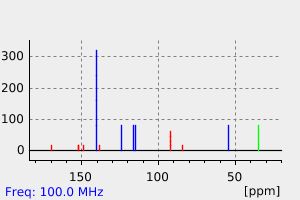毒理性
◉ 母乳喂养期间使用概述:三碘甲状腺原氨酸(T3)是人类乳汁的正常组成部分。如果母亲需要补充剂量的三碘甲状腺原氨酸,这并不是停止哺乳的理由。然而,由于缺乏关于在哺乳期间使用外源性三碘甲状腺原氨酸的信息,可能更倾向于使用其他药物。美国甲状腺协会建议,对于希望在哺乳期间进行母乳喂养的妇女,应使用左甲状腺素治疗亚临床和明显甲状腺功能减退症。与怀孕前相比,产后期间桥本甲状腺炎患者的三碘甲状腺原氨酸剂量需求可能会增加。
◉ 对哺乳婴儿的影响:截至修订日期,未找到相关的已发布信息。然而,来自非常早产儿的母亲的乳汁中的甲状腺激素含量似乎不足以影响婴儿的甲状腺状况。
◉ 对泌乳和乳汁的影响:正常的泌乳需要足够的甲状腺激素血清水平。补充甲状腺功能减退症引起的甲状腺水平不足应改善乳汁产量。超生理剂量的三碘甲状腺原氨酸不期望进一步改善泌乳。
◉ Summary of Use during Lactation:Liothyronine (T3) is a normal component of human milk. If replacement doses of liothyronine are required by the mother, it is not necessarily a reason to discontinue breastfeeding. However, because no information is available on the use of exogenous liothyronine during breastfeeding, an alternate drug may be preferred. The American Thyroid Association recommends that subclinical and overt hypothyroidism should be treated with levothyroxine in lactating women seeking to breastfeed. Liothyronine dosage requirement may be increased in the postpartum period compared to prepregnancy requirements patients with Hashimoto's thyroiditis.
◉ Effects in Breastfed Infants:Relevant published information was not found as of the revision date. However, the thyroid hormone content of human milk from the mothers of very preterm infants appears not to be sufficient to affect the infant’s thyroid status.
◉ Effects on Lactation and Breastmilk:Adequate thyroid hormone serum levels are required for normal lactation. Replacing deficient thyroid levels should improve milk production caused by hypothyroidism. Supraphysiologic doses of liothyronine would not be expected to further improve lactation.
来源:Drugs and Lactation Database (LactMed)







